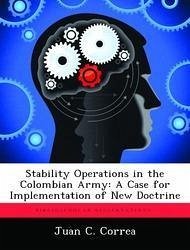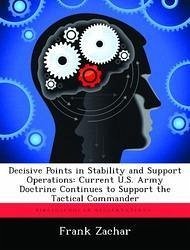Nicht lieferbar

Stability Operations and Engineer Doctrine
Versandkostenfrei!
Nicht lieferbar
Stability Operations are the key to ensuring the better state of peace after a range of conflicts. Since the end of the cold war, the U.S. military has engaged in operations ranging from peacekeeping to major combat operations in support of political goals. However, our doctrine remains focused on the force-on-force combat of the cold war era. The lesson learned throughout the 1990s, reinforced in Iraq, is the capability to conduct stability operations must become a core mission of the U.S. government and the U.S. military in particular. This paper contends that Joint Engineers are a critical ...
Stability Operations are the key to ensuring the better state of peace after a range of conflicts. Since the end of the cold war, the U.S. military has engaged in operations ranging from peacekeeping to major combat operations in support of political goals. However, our doctrine remains focused on the force-on-force combat of the cold war era. The lesson learned throughout the 1990s, reinforced in Iraq, is the capability to conduct stability operations must become a core mission of the U.S. government and the U.S. military in particular. This paper contends that Joint Engineers are a critical component of military stability operations but Joint Engineer doctrine doesn't reflect the importance of this mission. Reviews of joint and service doctrine, service publications, and lessons learned from Operation IRAQI FREEDOM provided the basis for this assertion. Specific doctrine deficiencies and strengths are identified and analyzed. The paper offers several specific recommendations to address the doctrinal deficiencies.








